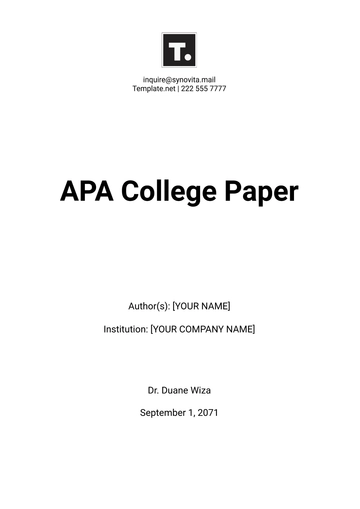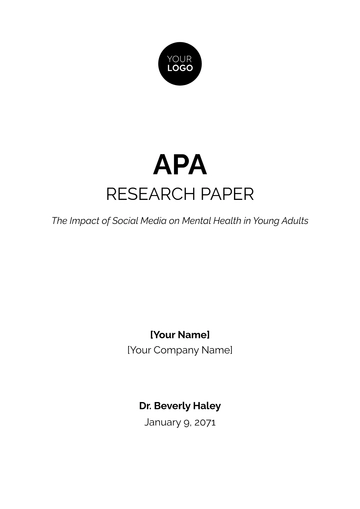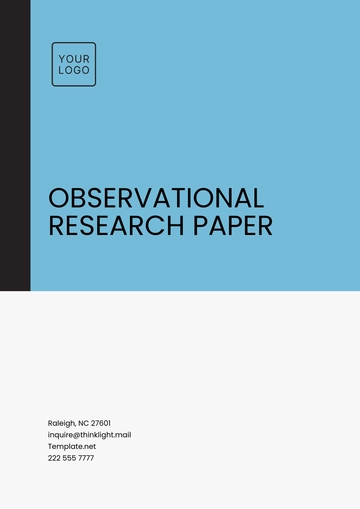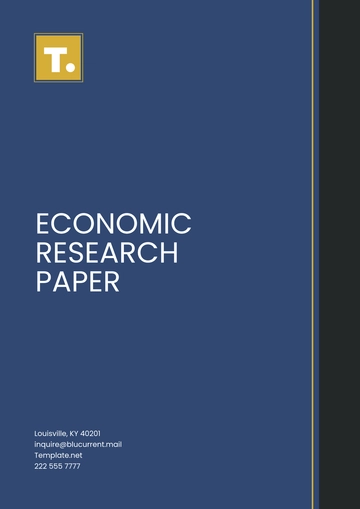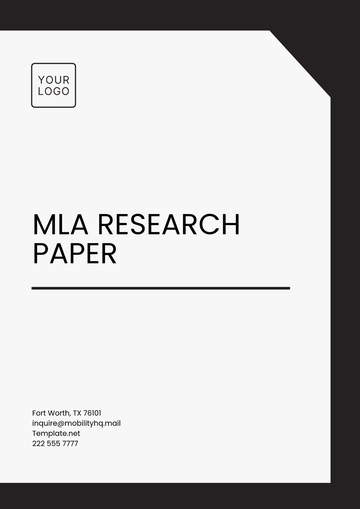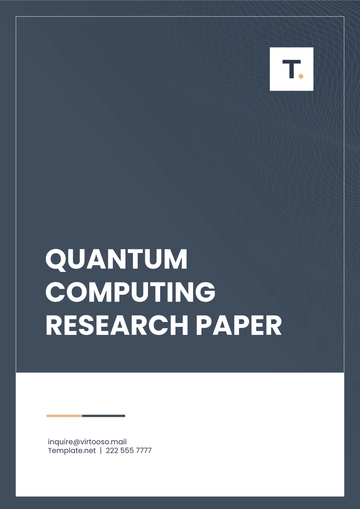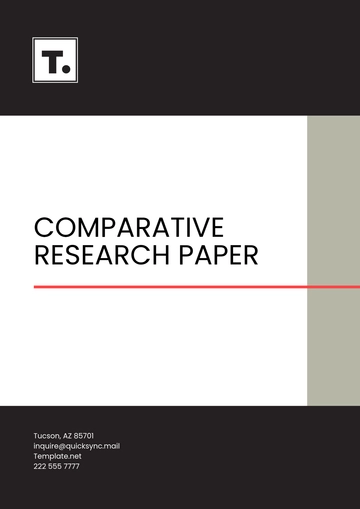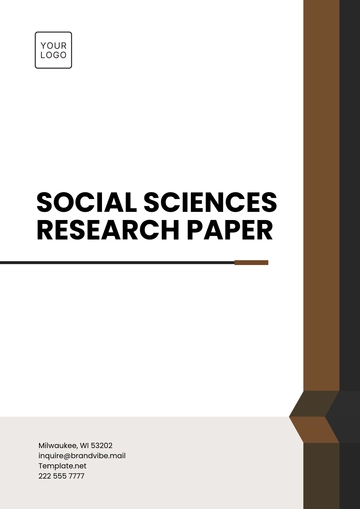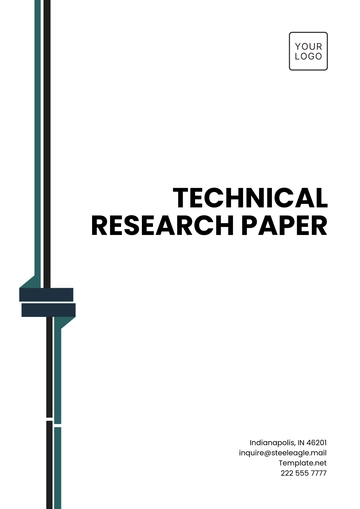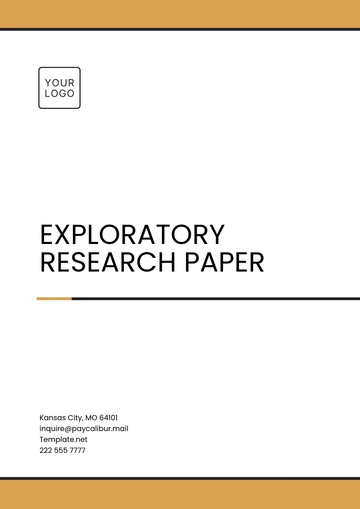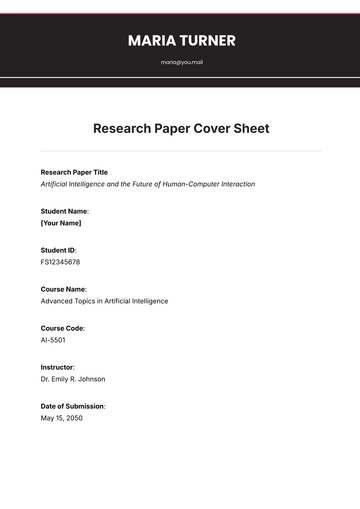Free Research White Paper

Emerging Trends in Renewable Energy Technologies
Author: [YOUR NAME]
Department: Department of Sustainable Energy
Academic Institution: [YOUR COMPANY NAME]
Date: August 30, 2050

I. Executive Summary
[YOUR COMPANY NAME]'s research white paper on Emerging Trends in Renewable Energy Technologies presents a comprehensive analysis of the current landscape and future prospects of renewable energy. This white paper aims to provide insights into the latest advancements in renewable energy technologies and offers recommendations for policymakers, industry stakeholders, and investors. It highlights key findings, implications, and potential impact on the global energy transition.
II. Introduction
The transition to renewable energy is crucial for addressing climate change and ensuring energy security. With increasing awareness of the environmental and economic benefits of renewable energy sources, there has been significant growth in renewable energy deployment worldwide. However, several challenges persist, including intermittency, storage, and grid integration. This white paper explores emerging trends in renewable energy technologies to address these challenges and accelerate the transition to a sustainable energy future.
III. Literature Review
A review of existing literature reveals that renewable energy technologies have experienced rapid advancements in recent years. Innovations in solar photovoltaics, wind turbines, energy storage systems, and grid management technologies have significantly improved the efficiency, reliability, and cost-effectiveness of renewable energy generation. However, there is still a need for further research and development to overcome remaining barriers and maximize the potential of renewable energy resources.
IV. Research Methodology
This research employed a mixed-methods approach, combining qualitative analysis of industry reports, academic journals, and policy documents with quantitative analysis of market data and technology trends. Data collection methods included literature review, interviews with industry experts, and analysis of primary and secondary data sources. The research focused on identifying emerging trends, technological innovations, and market opportunities in the renewable energy sector.
V. Findings
The findings reveal several emerging trends in renewable energy technologies:
Advancements in Solar PV: Breakthroughs in materials science, manufacturing processes, and system design have led to significant cost reductions and efficiency improvements in solar photovoltaic technologies.
Innovations in Energy Storage: The development of new battery chemistries, grid-scale storage solutions, and hybrid energy systems is enabling greater flexibility and reliability in renewable energy integration.
Smart Grid Technologies: The deployment of smart meters, advanced sensors, and predictive analytics is optimizing grid operations, enhancing reliability, and enabling greater integration of renewable energy resources.
Hydrogen Economy: The growing interest in green hydrogen as a clean and versatile energy carrier is driving research and investment in electrolysis, hydrogen storage, and fuel cell technologies.
Chart 1. Distribution of Renewable Energy Capacity by Source
VI. Discussion
The discussion explores the implications of these findings for policymakers, industry stakeholders, and investors. It emphasizes the need for supportive policies, investment in research and development, and collaboration across sectors to accelerate the adoption of renewable energy technologies. The discussion also highlights the importance of addressing challenges related to policy uncertainty, market barriers, and technological innovation to unlock the full potential of renewable energy.
"Renewable energy has become the most cost-effective source of new power generation in almost all parts of the world, undercutting fossil fuels and nuclear power. It's clear that renewables make economic sense."
- Francesco La Camera, Director-General of IRENA
VII. Recommendations
Based on the findings and discussion, the following recommendations are proposed:
Policy Support: Governments should implement supportive policies and regulatory frameworks to incentivize investment in renewable energy technologies and facilitate market uptake.
Research and Development: Increased funding for research and development is needed to drive innovation and commercialization of emerging renewable energy technologies.
Public-Private Partnerships: Collaboration between government, industry, and academia is essential to address technical, financial, and regulatory barriers and accelerate the transition to renewable energy.
Capacity Building: Investing in workforce training and education programs will ensure a skilled workforce capable of deploying and managing renewable energy systems effectively.
VIII. Conclusion
In conclusion, this white paper provides valuable insights into the emerging trends and opportunities in renewable energy technologies. By harnessing the power of innovation, collaboration, and policy support, we can overcome existing challenges and accelerate the transition to a sustainable energy future. Together, we can build a cleaner, more resilient energy system that benefits both present and future generations.
- 100% Customizable, free editor
- Access 1 Million+ Templates, photo’s & graphics
- Download or share as a template
- Click and replace photos, graphics, text, backgrounds
- Resize, crop, AI write & more
- Access advanced editor
This customizable Research White Paper Template from Template.net is designed for researchers looking to share their findings in a clear and organized manner. Whether you're presenting data, analysis, or conclusions, this template, editable in our Ai Editor Tool, helps you create professional and impactful research white papers. Get it now!


